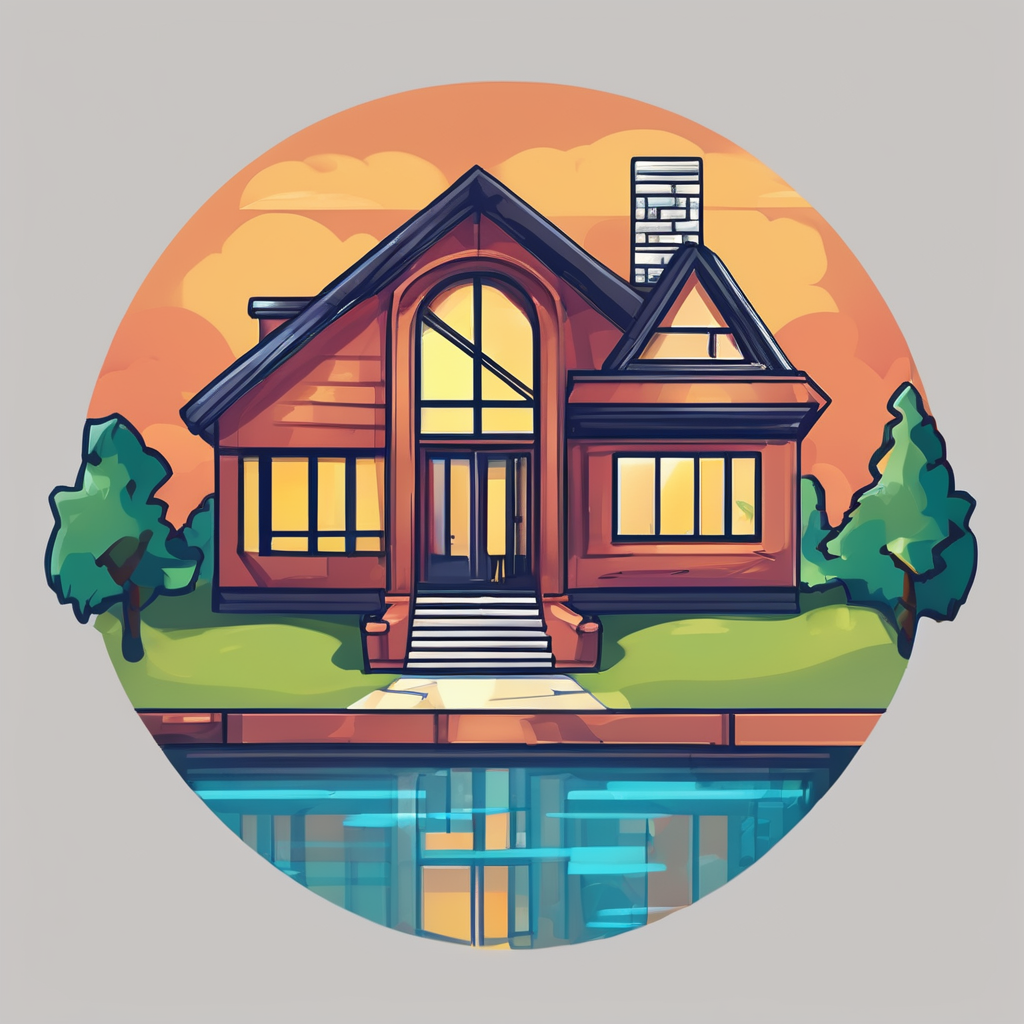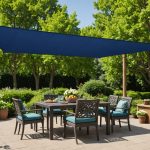Overview of Durable Pool Shed Materials
Choosing durable materials is crucial in ensuring the longevity of a pool shed. Several high-quality options exist, each with unique benefits tailored to different needs. Understanding these materials and their properties can aid in making an informed decision.
Pool sheds must stand against various environmental conditions, making material selection paramount. Common materials include wood, metal, and resin, each offering distinct attributes. Wooden sheds provide aesthetic appeal and natural insulation, while metal sheds are known for strength and fire resistance. Resin sheds, meanwhile, are praised for being heavy-duty, UV resistant, and requiring low maintenance.
Topic to read : Turn Your UK Poolside into a Tropical Paradise: Expert Tips for Lush Landscaping
When choosing materials, consider factors like durability, environmental resistance, and maintenance requirements. Additionally, weigh the pros and cons of aesthetics versus functionality. Metal might offer more durability but may not satisfy aesthetic desires like wood.
Ultimately, selecting the right material involves balancing these factors to meet individual needs and preferences. Ensuring the use of quality, durable materials will significantly enhance the longevity and functionality of your pool shed, making it a lasting investment.
Also to discover : Designing the Perfect Dual-Function Pool for Relaxation and Exercise in Your UK Home
Wooden Pool Sheds
Understanding the types of wood shed materials available is crucial when choosing a wooden pool shed. Popular options include cedar, redwood, and pressure-treated pine, each offering unique benefits. Cedar and redwood provide natural resistance to rot and insects, making them excellent choices for durability. Pressure-treated pine is cost-effective, though it may require regular maintenance to sustain its longevity.
Wooden pool sheds boast significant aesthetic appeal, blending seamlessly with natural surroundings. Their insulation properties help maintain a consistent internal temperature, ideal for protecting pool equipment from fluctuating weather conditions. These advantages make wood an attractive option for those valuing both form and function.
Proper maintenance is key to prolonging the life of a wooden pool shed. Regularly apply a quality water sealant to protect against moisture damage, and inspect shed joints for signs of wear or warping. Additionally, ensure proper ventilation to minimise internal humidity and prevent mould. These maintenance practices will help maintain the shed’s structural integrity and enhance its overall lifespan.
By carefully selecting suitable wood materials and committing to a regular maintenance routine, a wooden pool shed can be a durable and visually appealing addition to any garden or backyard.
Metal Pool Sheds
Metal shed materials like aluminium and steel are prized for their remarkable durability and fire resistance. Aluminium, being lightweight yet robust, offers great structural integrity with minimal maintenance. Steel, on the other hand, is highly resilient and withstands harsh weather conditions excellently, albeit requiring some upkeep to prevent rust.
Pros of metal pool sheds include their unmatched durability which ensures they stand the test of time and weather, providing a secure storage space. However, the downside is that metal’s industrial look might not appeal to everyone, lacking the aesthetic appeal of wood.
When maintaining a metal shed, consider the following:
- Rust Prevention: Regularly inspect the structure for signs of rust and use a protective coating or sealant to mitigate its development.
- Ventilation: Ensure proper ventilation to reduce internal condensation, which can accelerate corrosion.
- Cleaning: Frequent cleaning helps to remove debris and dirt that might cause surface damage over time.
In summary, metal pool sheds offer a viable option for those prioritising durability and low maintenance, though sacrificing some in aesthetics. Careful attention to rust prevention can significantly enhance their longevity.
Resin Pool Sheds
Resin shed materials offer significant advantages for pool shed construction. These sheds are known for being heavy-duty and UV resistant, ensuring a robust and long-lasting structure. Compared to their wood and metal counterparts, resin sheds require less upkeep, making them an appealing choice for those seeking minimal maintenance.
Benefits of resin: Not only are resin sheds weather-resistant, but they also withstand harsh environmental conditions without warping or fading. This marks them as a more durable option over time, especially in locations with extreme weather variations.
When evaluating pool shed options, it’s essential to compare resin sheds to wood and metal alternatives. While wood offers an aesthetic charm and insulation, and metal provides unmatched durability and fire resistance, resin combines aspects of both, providing a balance between sturdiness and ease of care.
Maintenance requirements for resin sheds are minimal, primarily involving periodic cleaning to prevent dirt accumulation. Inside, storage items are shielded from UV rays, decreasing wear on sensitive equipment. Although initial costs may differ from metal and wood, the long-term savings due to reduced maintenance expenses offer substantial benefits, aligning well with budget-conscious decisions.
Cost Considerations for Different Materials
Budgeting for a pool shed depends largely on the materials selected. Understanding the pool shed cost comparisons among wood, metal, and resin is crucial for making an informed decision. Traditionally, pool shed costs associated with wood vary widely because of the material’s aesthetic appeal and insulation properties. High-end woods like cedar and redwood are more expensive initially but may offer better long-term investment value due to their durability and natural resistance to decay.
Conversely, metal sheds introduce a unique budget consideration. They often feature aluminium or steel, offering notable durability and fire resistance, yet pricing is contingent on the thickness and quality of the metal. While initial costs can be high, their longevity often means less replacement or repair expense over time.
Resin sheds, known for their low maintenance and resilience against harsh weather, have an attractive initial price point. Their long lifespan without frequent repairs also contributes to significant long-term savings, making resin an excellent choice for budget-conscious buyers prioritising minimal upkeep.
When planning your investment, balance initial expenditures with potential long-term savings. Researching suppliers and comparing costs ensure you select materials that align with both financial expectations and durability requirements.
Expert Tips on Pool Shed Construction and Maintenance
Building a durable pool shed involves more than just selecting the right materials; the construction process and ongoing maintenance are equally crucial. To enhance longevity, pay close attention to crafting a solid foundation. A concrete base is recommended for preventing water accumulation and ensuring structural stability.
In terms of maintenance best practices, regular checks can prevent minor issues from becoming major problems. Seasonally, inspect your shed for any signs of wear, such as rust on metal, warping in wood, or fading on resin. Immediate repair of these issues will greatly extend the life of your structure.
Seasonal checks are indispensable. During colder months, ensure wooden sheds are properly sealed to repel moisture. For metal structures, apply anti-rust coatings as needed. Resin sheds, with their low maintenance requirements, still benefit from a simple wash to keep them in top condition.
At the construction stage, integrating proper ventilation can mitigate internal moisture build-up, which is harmful across all materials. Consider roof vents or breathable wall panels to promote air circulation. Employing these longevity strategies, from initial build to consistent upkeep, guarantees your pool shed remains an efficient and lasting feature of your property.
Top Recommendations for Materials and Suppliers
Exploring the best pool shed materials starts with seeking out reputable suppliers that ensure quality and reliability. Based on extensive user reviews, top picks often align with durability, design preferences, and maintenance requirements.
For wooden sheds, brands specialising in sustainable wood shed materials like cedar are highly praised for their fine craftsmanship and environmental consciousness. Known suppliers often offer customisable options to fit aesthetic needs, ensuring your shed complements your outdoor space.
When it comes to metal sheds, companies providing high-grade aluminium and steel are recommended for their robustness and resistance to harsh conditions. Suppliers with a reputation for advanced galvanisation processes stand out, reducing maintenance concerns related to rust.
Resin materials find favour among those valuing minimal upkeep. Top resin sheds from well-regarded manufacturers offer strength and UV resistance, making them a smart, enduring choice. Suppliers offering comprehensive warranties instil confidence in long-term investment.
To locate these reputable suppliers in the UK, consider online directories and reviews on platforms like Trustpilot, aiding informed decisions based on shared experiences. When prioritising a blend of quality and cost-effectiveness, thorough research and evaluations ensure that your top picks for quality align with both functional and aesthetic desires.



